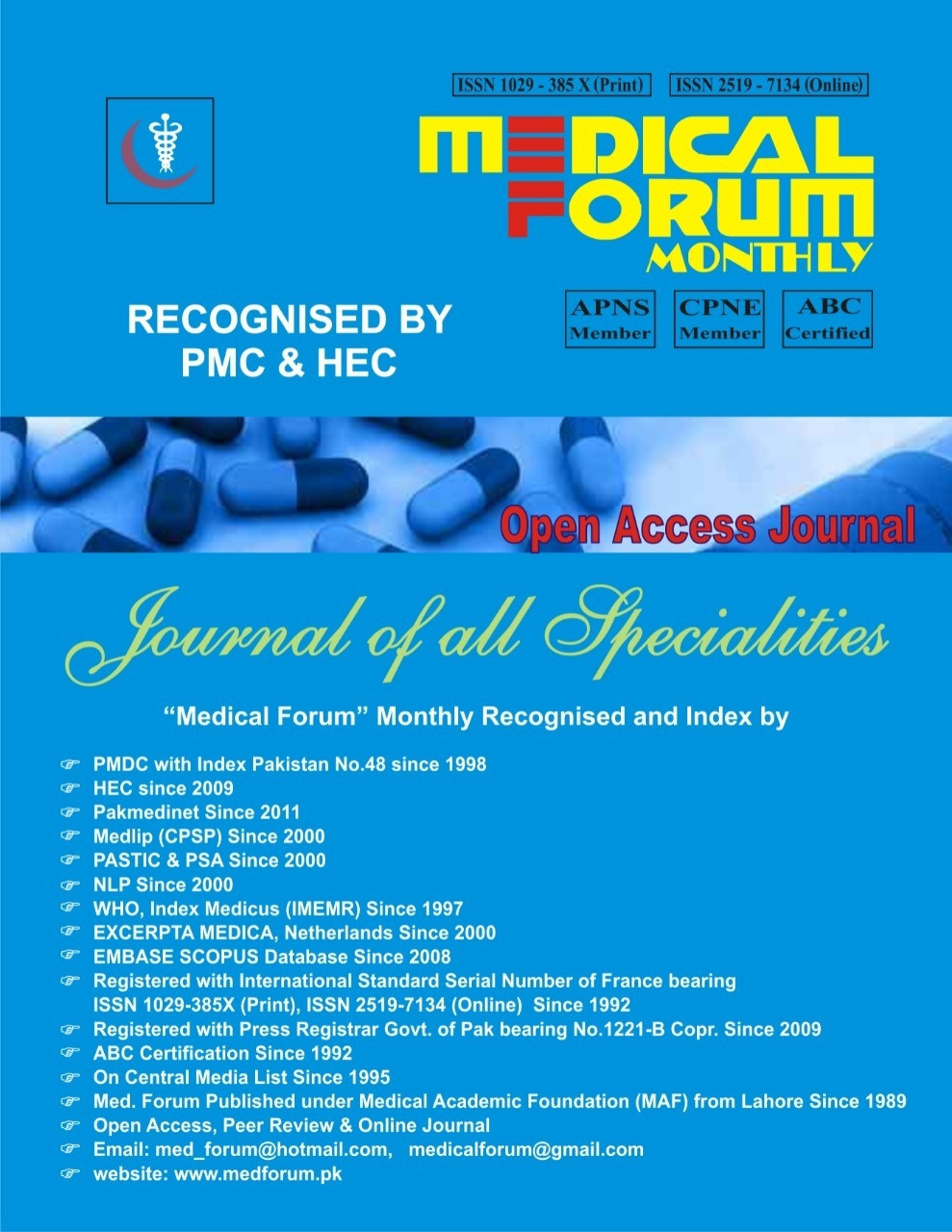
10. Comparison of the Mean Duration of Analgesia of Intraperitoneal Bupivacaine and Ropivacaine Versus Placebo After Laparoscopic Cholecystectomy
Muhammad Waqid Bin Abdullah1, Roshan Butt1, Afzaal Baig1, Syed Muhammad2,
Alha Bukhari1 and Zubair Ahmad1
ABSTRACT
Objective: To compare the mean duration of analgesia of intraperitoneal bupivacaine, ropivacaine and placebo after laparoscopic cholecystectomy.
Study Design: Randomized controlled trial study.
Place and Duration of Study: This study was conducted at the department of Surgery, Services Hospital, Lahore from 27th of July 2021 to 26th of January 2022.
Methods: A total of 90 patients above the age of 18 years, undergoing laparoscopic cholecystectomy were included in this study and divided in to 3 equal groups, Group R (Ropivacaine group), Group B (Bupivacaine group) and Group S (Normal saline group) using computer generated randomization. Patients in Group R were administrated 35 ml of 0.375% ropivacaine (131.25 mg), patients in Group B were administrated 35 ml of 0.25% bupivacaine (87.5 mg) while patients in Group S were administrated 35 ml of 0.9% normal saline. The primary outcome was set as the significance of difference in mean duration of analgesia between the groups in the post-operative period.
Results: The Mean±SD of age in this study was 40.71±12.23 years with an age range of 20 to 62 years. The ratio of male gender was higher (71.11%) compared to female gender (28.88%) in overall study population. The overall mean duration of surgery was 31.83±6.13 hours. The results of primary outcome of the study show that mean duration of analgesia in post-operative period was significantly longer in Group R compared to Group B and Group S (13.43±2.04, 7.56±1.81 and 4.13±1.1 respectively, p=0.000).
Conclusion: Intraperitoneal ropivacaine provides longer duration of analgesia compared to bupivacaine and placebo after laparoscopic cholecystectomy.
Key Words: Bupivacaine, Duration of analgesia, Laparoscopic cholecystectomy, Ropivacaine.
